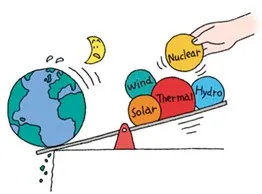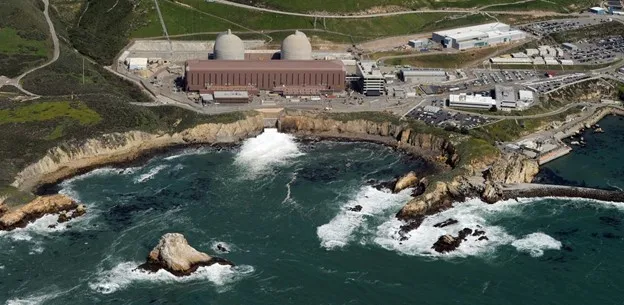Originally published Dec 19, 2023 in Energy Ruminations.
Oil & Gas Executives Believe that Common Sense Energy Policies Must Include a Greater Role for Nuclear Energy
Oil and gas professionals spend most of their waking hours going about the difficult task of providing safe, reliable and affordable life-sustaining energy to billions of people around the globe. Oil and gas professionals are frustrated by incomprehensible energy policies and impractical energy transition solutions which are making our U. S. energy systems and power grid expensive, unreliable and alarmingly fragile. These energy policies are imposed by policy makers who often lack a fundamental understanding of our complex energy systems. Oil and gas executives opine for an intellectually honest dialog about energy and policy solutions grounded in physics and sound engineering principles. Many oil and gas executives, believe that common sense energy policies must include a greater role for nuclear energy.

The so-called “Energy Transition” is the defining issue of our time. How we handle the energy transition will greatly impact not only the environmental future of our planet, but also the economic future of humanity. People often talk about the energy transition as some sort of newfangled idea that began 20 years ago when we began constructing wind turbines to generate electricity. In reality, the energy transition began at the dawn of humanity and has continued for hundreds of thousands of years (dung to wood, wood to coal, whale oil to petroleum, coal to nuclear, etc.).
Furthermore, the energy transition will continue in perpetuity beyond our collective lifetimes. The felicitous question is not whether or not there will be an energy transition, the questions are “what will the energy transition look like over the next 50 years, will the energy transition promote human flourishing and will the energy transition be just.” Regrettably, our current energy policies seem to be promulgated with a severe lack of knowledge about our complex energy systems and disregard for physics and the consequences to human flourishing.
At a recent Commencement Ceremony at the University of Colorado Medical School, Dean John Reilly, MD commented “Most of our elected officials have good intentions, but they don’t know a lot about health care and what the result of that is, are policies that are well intended but have unforeseen consequences. It is our responsibility to engage in dialogue with those people, educate them, advocate so that we create policies that make sense …”
What Dr. Reilly astutely lamented about healthcare can also be extrapolated to the unforeseen consequences to energy policy. Even though public leaders and policy makers are, by and large, honest and well intentioned, most of them have little knowledge about complex and consequential energy systems. It is almost impossible for policy makers to craft astute energy policy without a comprehensive understanding of energy.
The politicians are making choices and the engineers are not.
Energy is literally the lifeblood of all modern society. Yet, most are seemingly unaware of how critical energy is to our everyday lives and thus, most people do not appreciate of how harsh and onerous life would be without plentiful and affordable energy Safe, reliable, abundant and affordable energy is figuratively and literally the feedstock enabling every other industry. A healthy society depends on healthy industry and commerce. In turn, healthy industry and commerce depend on safe, reliable and affordable energy.
Energy consumption strongly correlates to the level of prosperity and comfort enjoyed by societies. While nations that use copious amounts of energy are not guaranteed to be prosperous, countries using meager amounts of energy are universally poor. Energy is essential to provide the basic needs of all humanity and is particularly vital in order to lift entire populations out of poverty. Accordingly, we have a moral imperative to develop and use more energy, not less.
Energy is the source that enables everything else in human life.
Lamentably, at least one-third of the world’s population lives in energy poverty and almost one billion people still have no access to reliable electricity. For those of us who are privileged to live in wealthy, energy-abundant societies, it is naïve and unreasonable to expect those living in abject energy poverty to worry about their carbon footprint when they don’t even know where their next meal is coming from. Therefore, the sooner that we enable poor nations to cultivate energy abundance in an amount sufficient to meet their basic needs, the sooner that we can expect them to exhibit greater concern for environmental issues.
Heralded renewable energy technologies such as wind power and solar power undoubtedly serve a very important role in the ongoing energy transition. However, wind and solar alone cannot power society at an industrial scale. Crude oil and natural gas are destined to continue playing a keystone energy role for many decades. However, for some reason, we often seem to overlook the vital importance of nuclear energy. If we desire to simultaneously preserve our existing standard of living, reduce carbon emissions and lift billions of people out of poverty, we will need to employ much more nuclear energy worldwide.

Whatever one may think about the oil and gas industry, we cannot deny that oil and gas professionals are smart, innovative and highly knowledgeable about energy. The millions of oil and gas professionals around the world who have spent their careers developing and producing crude oil and natural gas can readily discern superior forms of energy and appreciate the extraordinary value of an energy-dense fuel like nuclear for its capacity to provide safe, reliable, affordable, abundant, resilient and virtually carbon-free power.
There are millions oil and gas professionals in the United States alone and its seems that most of them intuitively understand that we desperately need much more nuclear energy. At a recent oil and gas conference in Denver with approximately 200 attendees, the members of the audience were asked to raise their hand if they were opposed nuclear energy. Unsurprisingly, not a single person raised their hand to express opposition to nuclear energy.

Diablo Canyon [Nuclear] Power Plant, San Luis Obispo, California
Although oil and gas executives do not directly benefit from supporting or endorsing nuclear energy, it is evident that that most oil and gas executives support the expanded role of nuclear energy because of nuclear energy’s obvious benefits and practicalities. Having oil and gas executives openly support nuclear energy sends a powerful message to political leaders, policy makers and the general public about the need for improved energy literacy and better policy solutions.
An organization called Oil & Gas Executives for Nuclear has recently drafted a Declaration of Oil and Gas Executives in Support of Nuclear Energy (See here Declaration – Executives4Nuclear). Supporters believe that this declaration and gesture of support will signal the need for more thoughtful and pragmatic energy policies and serve as a catalyst for the development of more nuclear energy. So far, over one hundred current and retired oil and gas executives, ranging in age from 34 to 84, have signed the Declaration of Oil & Gas Executives in Support of Nuclear Energy. It is remarkable and revealing that oil and gas executives would publicly come out in unequivocal support of nuclear energy.
In the past, energy transitions have always occurred organically, as one energy source is gradually replaced by a superior energy source. However, for the first time in history of humankind, western societies are attempting a global energy transition based primarily on ideology and imposed by political policy. As such, we need to be sure that the energy transition policy is thoughtful, otherwise we risk spending trillions of dollars transitioning to something worse and not better. “Even an energy transition must be sustainable” and a just and environmentally sustainable energy transition is only possible with a much greater use of nuclear energy.
Even an energy transition must be sustainable.
Douglas C. Sandrige is the Executive Director of Oil and Gas Executives for Nuclear and a Senior Vice President at Fulcrum Energy Capital Funds. He writes for Energy Ruminations on Substack.
